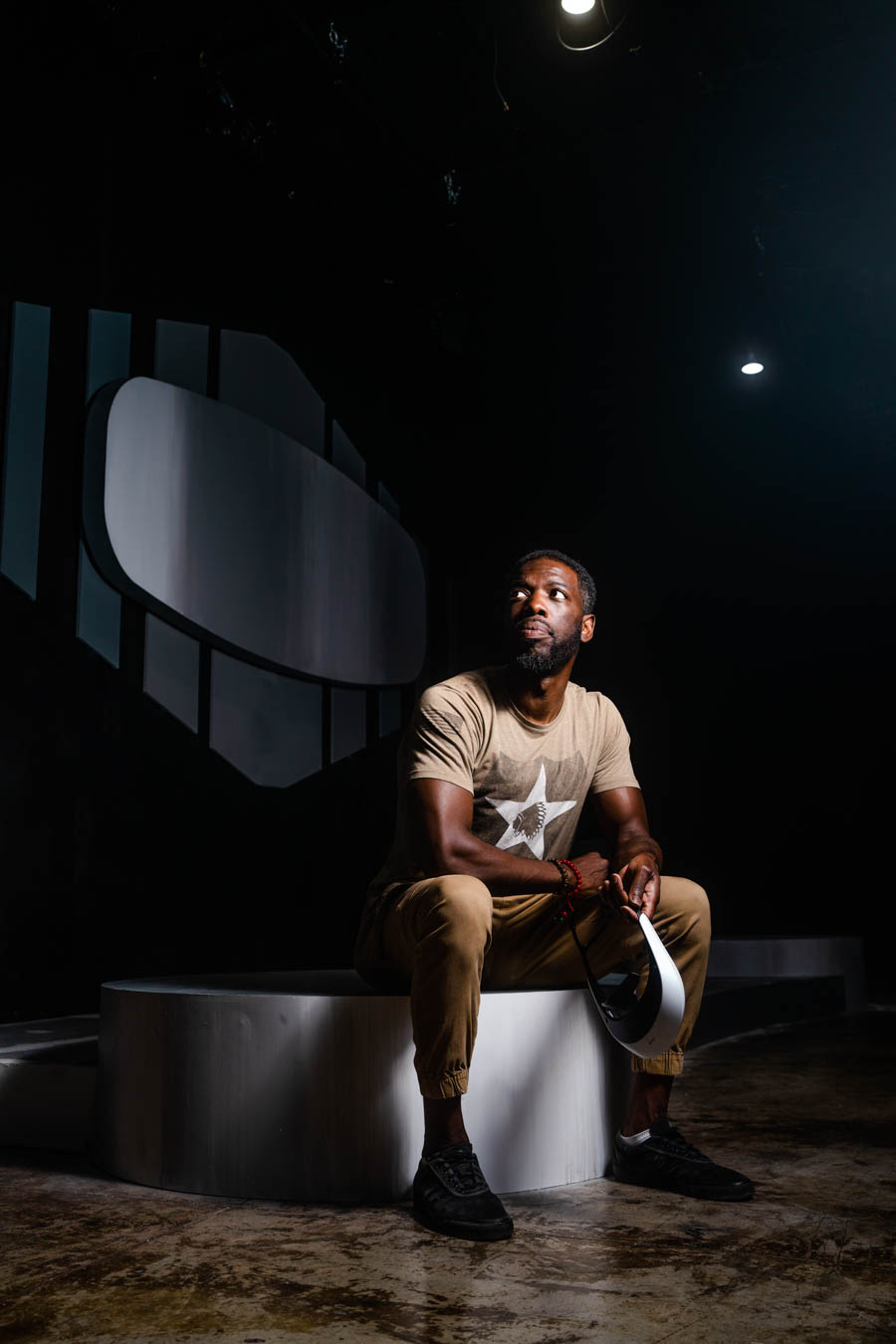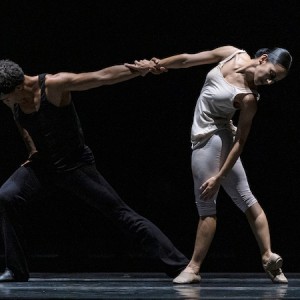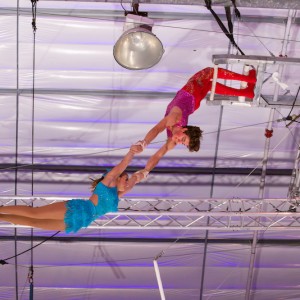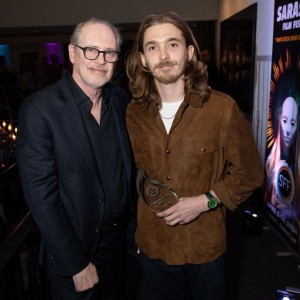“When we think of soldiers suffering from post-traumatic stress disorder. we tend to think of these big violent acts, but we don’t always think of how a soldier’s interpersonal mind works and changes with PTSD,” says Jacqueline Goldfinger. “Because they’ve often built these walls to keep themselves safe, they tend to be less sensitive to the needs of friends and family. They strike out in ways that tend to be less cognizant of the consequences of their actions, striking out emotionally and mentally.”
Goldfinger is speaking from the heart about the topic of her latest play, Backwards Forwards Back, which is set to make its world premiere at Urbanite Theatre in March. The one-man drama, which follows a veteran who turns to virtual reality therapy to address his PTSD and repair broken familial relationships, was inspired partially by Goldfinger’s memory of her grandfather’s struggles with PTSD from his time serving in WWII.
“The idea was initially sparked by a news article I read at the beginning of the pandemic about experimental VR Therapy [virtual reality] for veterans suffering from severe PTSD. My familial connection with my grandfather aided in my decision to write the play,” says Goldfinger. “I think it’s so important having seen my grandfather’s experience and thinking about how different our family would’ve been if he was not affected by PTSD or he had some treatments that could help rewire his brain. He was a lovely grandfather but he had moments where he was just not himself and if we would’ve had the chance for him to undergo this treatment our family would’ve been healthier for it and he would’ve lived longer.”
It was that kernel of an idea that Goldfinger developed over the long months of quarantine, with the aid of a grant from the Alfred P. Sloan Foundation, that eventually turned into Backwards Forwards Back. The grant, which allowed Goldfinger to step back from some of her work as an adjunct professor teaching playwriting in Temple University’s MFA Playwriting Program and devote herself to researching PTSD among veterans, proved invaluable to the creation of the story. “I was able to speak with VR specialists, read accounts from soldiers and engage with veterans who deal with PTSD so that I had enough information to make the draft as right as it could be,” says Goldfinger. “In Sarasota, we worked with Operation Warrior Rescue and their executive director Kendra Simpson to ensure that while every experience with PTSD is going to be different, the general experience of this soldier who is a character on stage will be as close as to what soldiers actually go through. I have to realize that this is probably going to be one of the only experiences with PTSD that many of our audience members will have. So we want to represent it as honestly as we can on stage.”
Goldfinger’s diligence was well rewarded when she sent a full draft of the play to Brendan Ragan, the co-artistic director of Urbanite Theatre and director of Backwards Forwards Back. Goldfinger and Ragan had connected previously, due to Urbanite’s production of works by playwrights Goldfinger admires such as Sheila Callaghan and Larissa FastHorse.“We received it in early 2022, right in the tail end of our season planning process, and thought the play would pair really beautifully with the other work that we were doing this year,” says Ragan. “It was kind of one of those kismet moments that you always hope for as a producer where the perfect play falls into your lap—Backwards Forwards Back was the last one we picked for our current season, Heredity, so not only did it fit stylistically with all of the other productions focusing on different aspects of the family unit, but we loved the solo show format for Urbanite because our space is so intimate.”
While the casting of a production is always a precious process, choosing the right actor for a one-man show is perhaps an even more critical endeavor—there is nowhere to hide. There isn’t a scene, a moment, or a single line of dialogue that doesn’t involve the lead in a one-man show, instead of a participant in the story, they are the sole generator of it. In rehearsal, there are no other actors to bounce ideas off of or to share the load with, just the director and the daunting amount of pages that lay before them. The actor has to know the text unconsciously— internalized to the point where the dialogue isn’t just lines in their head but a part of their being.
Fortunately for Ragan, he knew just the man for the job: fellow FSU/Asolo Conservatory for Actor Training alum and Army veteran L. James. “Two pages into reading the play I thought of LJ for the role. Most people who read plays for a living will tell you that as you read the play you kind of inadvertently cast it in your head, oftentimes recasting someone else by the end, but my vision of him just got stronger and stronger,” says Ragan. “The reason that I immediately thought of him was (A) I had a great time working with him before, he’s just a positive talented wonderful artist and (B) he’s also an Army veteran. I just thought that the level of authenticity he could bring to this would be so wonderful, so I sent him the script before we even had the rights to it and he was over the moon. He’s always wanted to combine his plight as a veteran with his more recent career as an actor and do something to advocate for veterans, so he was highly interested in the project.”
The fit was so good that Ragan didn’t audition anybody else for the role. Then, with the actor cast and the rights secured, Ragan set about building out the world that Goldfinger had created in the story. “I love a play without a clear roadmap, it’s my favorite kind of script to read. Jackie gives you the narrative but she doesn’t give you any prescription of what the set should be or if there should be any projections or how to do the lighting – there’s just one chair, one actor, a VR helmet, and a water bottle and that’s it,” says Ragan. “Anytime you can build a world from scratch really excites me.”










